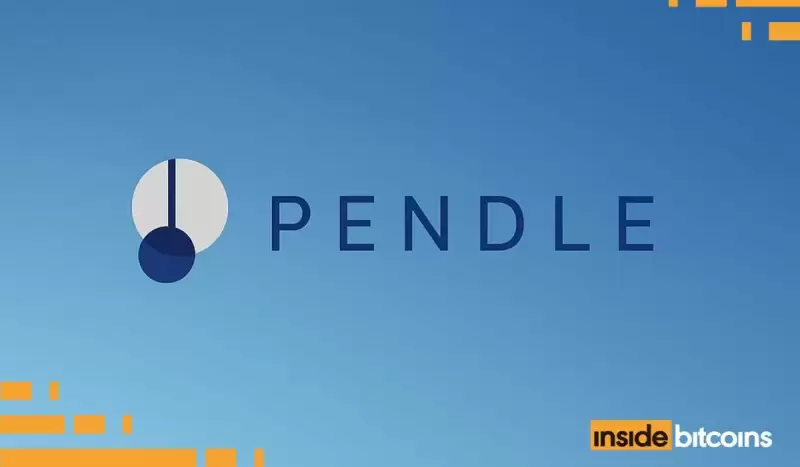 |
|
 |
|
 |
|
 |
|
 |
|
 |
|
 |
|
 |
|
 |
|
 |
|
 |
|
 |
|
 |
|
 |
|
 |
|
Cryptocurrency News Articles
A U.S. House of Representatives committee has advanced a stablecoin bill
Apr 03, 2025 at 09:00 pm
On April 2, the House Financial Services Committee held a markup session that succeeded in sending the STABLE Act to the House floor for a vote

A U.S. House of Representatives committee has advanced a stablecoin bill, while USDC-issuer Circle’s initial public offering (IPO) has exposed its unhealthy financial relationship with the Coinbase (NASDAQ:COIN) exchange.
On April 2, the House Financial Services Committee held a markup session that succeeded in sending the STABLE Act to the House floor for a vote following a marathon markup session. The vote was 32-17 in favor, with five Democrats joining the Republican-controlled committee’s majority in voting ‘aye.’
Going in, hopes were high that the House committee would follow the lead of the Senate Banking Committee, which last month held its own markup hearing of that chamber’s stablecoin-focused GENIUS Act that approved sending GENIUS to the Senate floor for a vote.
The hearing dragged on for nearly 10 hours, thanks in part to Democratic outrage over President Donald Trump and his family announcing plans for their own stablecoin (USD1) last month.
One of the hearing’s more striking moments came when Rep. Maxine Waters (D-CA)—who, along with former Rep. Patrick McHenry (R-NC), introduced a stablecoin bill in the previous Congressional session that Waters reintroduced in this session—accused Trump of plotting to use USD1 as the new means of facilitating government payments.
According to Waters, “Trump likely wants the entire government to use stablecoins from payments made by the Department of Housing and Urban Development, to Social Security payments, to paying taxes. And which coin do you think Trump would replace the dollar with? His own, of course.” (For the record, the guy writing this suggested as much last month.)
Waters continued, saying, “There is nothing stopping President Trump from forcing the American people to use his own stablecoin. USD1 could be the way Americans receive their tax returns, their Social Security check … USD1 could be used for housing grants, forcing local governments and suppliers to use the token for their critical housing projects.”
Despite the committee's approval, the bill still faces an uncertain fate in the House.
After the committee approved STABLE 32-17, members began discussing amendments to the bill.
One amendment, proposed by Rep. Sam Liccardo (D-CA) and co-sponsored by several other Democrats, aimed to prevent Trump, members of his cabinet and immediate family from having any financial interest in stablecoins during Trump's presidency.
The amendment was ultimately rejected by the committee in a 19-26 vote, with all five Democrats who voted in favor of STABLE voting against this amendment.
The committee also rejected an amendment that would have prohibited the president from imposing tariffs on goods or services imported from any country where a stablecoin is authorized.
The committee did, however, approve an amendment that would require the Department of Homeland Security to submit a report to Congress on the potential risks posed by foreign state-controlled stablecoins.
The committee also approved an amendment that would require the president to impose sanctions on any foreign person or entity that materially aids in the violation of U.S. sanctions through the use of a stablecoin.
After several hours of discussion, the members finally completed their markup of the bill and voted to send it to the House floor.
The committee's chairman, Rep. French Hill (R-AR), said that he was pleased to see the committee come together in a bipartisan manner to advance the bill.
"We have a common goal, which is to ensure that the United States remains the leading financial technology power in the world," Hill said.
The committee's ranking member, Rep. Maxine Waters (D-CA), said that she had concerns about the bill, but that she was glad to see the committee make progress on the issue of stablecoins.
"I believe that we need to proceed cautiously and thoughtfully in this area," Waters said. "We don't want to make any hasty decisions that could have negative consequences for consumers and the broader economy."
The House Financial Services Committee's approval of the STABLE Act comes as the Senate is also considering legislation on stablecoins.
Last month, the Senate Banking Committee approved the GENIUS Act, which would create a framework for the regulation of stablecoins and other digital assets. The bill is now on the Senate floor.
The House and Senate will now need to reconcile their respective bills before sending a final bill to President Biden for his signature.
Disclaimer:info@kdj.com
The information provided is not trading advice. kdj.com does not assume any responsibility for any investments made based on the information provided in this article. Cryptocurrencies are highly volatile and it is highly recommended that you invest with caution after thorough research!
If you believe that the content used on this website infringes your copyright, please contact us immediately (info@kdj.com) and we will delete it promptly.
-

-

-

-

-

-

- With a 10% drop over the past week, Ethereum price is currently testing crucial support levels followed by a heavy ETH whale selloff taking place
- Apr 05, 2025 at 07:40 pm
- Despite this, some market analysts believe that ETH will soon start outperforming Bitcoin. Popular analyst Michael van de Poppe stated that altcoins will soon start gaining momentum as Gold shows signs of topping out.
-

-

-


























































